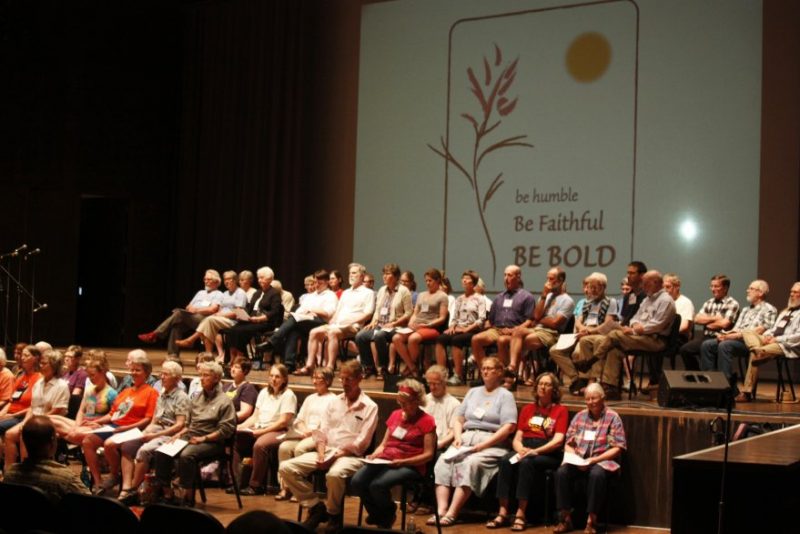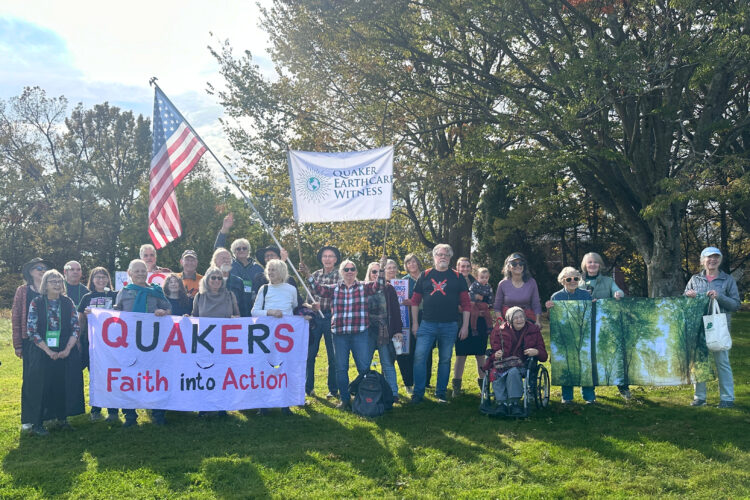Reckoning the “Other”

By Shelley Tanenbaum.
Two dynamic and challenging speakers stood out for me at the 2016 Friends General Conference (FGC) gathering in St. Joseph, Minnesota this July. Nekima Levy-Pounds, law professor and leader of the Black Lives Matter movement, came to us after sitting-in at the Governor’s mansion in the immediate hours after Philando Castilo, a young black man, was shot and killed by a police officer as he was reaching for his identification.
She described her trajectory as a young black southerner growing up poor, transported to an elite boarding school in the northeast with a generous scholarship, then University and law school. She had successfully gotten a law degree and a doctorate and was teaching at the university level when she received a calling from God to open a civil rights law clinic.
She resisted the calling for as long as she could—this would change her path away from a safe career as a law professor and into unknown territory. No sooner was the clinic established when her next calling came: Michael Brown had just been killed in Ferguson by the police, and she was drawn to be a witness there. This calling took much prayer on her part and with her family, yet she soon found herself not just being present as a witness, but being the first person arrested as the protests grew. Dr. Levy-Pounds has become one of the most prominent leaders of the Black Lives Matter movement.
She had two primary messages for the predominantly white FGC audience. She told us, unsparingly but with a welcome dose of humor, that we need to wake up about the extreme inequity that goes with white privilege. All Quakers—both white and Friends of color—were inspired by her example to be open to following spirit-led callings and taking bold action.
Peggy Senger Morrison followed Dr. Levy-Pounds on the final evening plenary with a bible story like no other you have ever heard. She is a founding member and the first minister of Freedom Friends Church in Salem, Oregon. She is also a long-distance motorcyclist with a passion for getting lost on the open road. Freedom Friends embraces both Christianity and diversity, and it is open to people of all sexual/gender persuasions.
She talked about two young teenage girls who bravely and faithfully changed the course of religious history, despite the first young girl having been abducted and sexually assaulted and the second young girl being betrothed and impregnated without consent. The first young girl, Esther, used her intelligence and beauty to save her people, the Jews of Persia, all the while risking her life. Instead of remaining a passive victim, she asked for divine assistance and took charge of her life: “Pray for me, for I might perish.”
As Peggy tells the story of the second young girl, Miriam of Nazareth—or as she is more often called, Mary—she found herself first betrothed and then pregnant with no help from her betrothed, in a time when her condition could have easily resulted in her own death by torture. After the fact, she ascents (without consent, because she was already in the predicament) and boldly allows spirit to flow through her.
During this year’s conference we heard first of the tragic shooting of Philando Castile in Minneapolis, followed shortly by more tragedies: Alton Sterling’s death in Baton Rouge, followed by deliberate targeting of police officers in Dallas (two weeks later, also in Baton Rouge). I’ve previously written about the way people of different races, classes, and ethnicities are seen as the “other.” Fear and distrust follow, all too often with tragic consequences. Viewing people different from ourselves as “other” in our work on Earthcare and climate change has less immediate but equally tragic consequences. Do we care less or act less boldly because climate change is happening elsewhere or in the future or to other species?
Both speakers inspired me to interpret this year’s conference theme (in bold) as follows: Be Humble—work with others; Be Faithful—persist; Be Bold—stop dithering and do something.
=================

